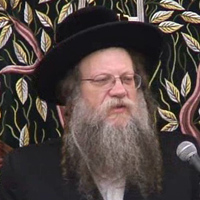- Sections
- Parashat Hashavua
66
The Coronavirus pandemic is certainly a health issue; it is important to avoid contracting or transmitting it, which are Torah obligations. But the period has been challenging for us in two other ways.
Financial crisis – Many families lost their livelihoods. Our non-profit enterprises, whether tzedaka or Torah organizations, have had a harder time raising money from their communities and from the government.
Social crisis – Many people suffered emotionally because of pressure, whether financially related or due to social distancing and difficulty in international travel. The long period of curtailed physical contact with family left scars on those in need of it.
Parashat R’ei addresses these two areas of human concern, as we will now explain. The Torah (Devarim 14:22-23) describes the mitzva of ma’aser sheni. 9% of the overall agricultural produce is set aside to eat when the family goes to Yerushalayim for the regalim. The Ramban explains that the purpose is, as stated, "So that he should learn to fear Hashem," because the national teachers are prevalent there to teach him. The Hadar Z’keinim continues that the hope was that people might even stay after the chagim to learn more. So going to Yerushalayim is not just about bringing korbanot but also about taking a break in the daily activities to grow from spiritual and emotional perspectives in a holy place with holy people. This is a wise use of the significant tithe of the produce. Today as well, one of the important jobs of "Torah professionals" is to be concerned with the emotional health of their students/congregants.
The section on tithes uses the language of "aser te’aser" (you must certainly tithe), but Chazal point out that it can be read homiletically as give tithes to enrich yourself or so that you should not be missing anything (Tanchuma, R’ei 18). Indeed one who gives gains more than what he gives, as he is promised divine blessing. Especially in difficult financial times, we must encourage acting on the value of being there to help those who are in (greater) need. When giving tzedaka, one is even allowed to test Hashem to see if he will get the blessing, even though such an exercise is usually forbidden (Ta’anit 9a).
The Rabbis expanded the idea of tithing from agricultural produce in Eretz Yisrael to profits from the world of commerce wherever one is. It is a great honor to support those in need, especially when they are those who are toiling in Torah study, as these are people who are or will be strengthening the spiritual and emotional health of the nation and serving as role models for serving Hashem.
Let us pray that we will be among those who have the privilege to give and help provide for not only the physical but also the spiritual/emotional needs of our brethren, both on an individual and on a national level, and all of this in the "ways of pleasantness."

The Menora of Wisdom
Rabbi Shaul Yisraeli zt"l | Sivan 14 5775

Parashat Hashavua: More Mila than Brit?
Rabbi Yossef Carmel | Iyar 5785

Parashat Hashavua: A Look Beyond Time and Space
Rabbi Yossef Carmel | Tevet 5785

Gold, Silver, Precious Stones – Closeness to Hashem – part III
Rabbi Yossef Carmel | Adar 5785

Performing a Proper Hesped
Rabbi Yirmiyohu Kaganoff | 5771

What Is the Significance of the Number 40 in Jewish Tradition?
Rabbi Stewart Weiss | Tevet 4 5782

Study House of Shem & Ever in a world of Lavan
Rabbi Berel Wein | Kislev 5768

Pirkei Avot between Pesach and Shavuot
Rabbi Berel Wein | 5769

Reassuring His Parents – #314 – part I
Date and Place: 23 Sivan 5670 (1910), Yafo
Beit Din Eretz Hemda - Gazit | Iyar 5785
Daf Yomi Makkot Daf 22
R' Eli Stefansky | 2 Iyar 5785






